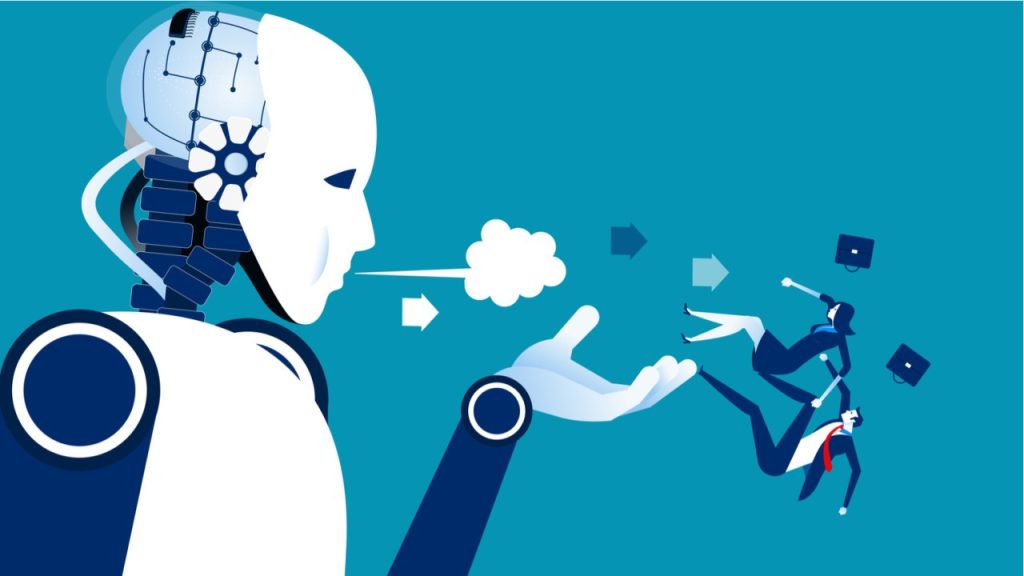
As AI continues to develop, the question Is AI going to replace my job is on many people’s minds. With the rise of machine learning, automation, and data analysis, it’s natural to worry. Will machines take over tasks traditionally performed by humans? While the concern is valid, the reality is that AI is transforming industries, not just replacing jobs. AI can be a powerful tool that works alongside people, enhancing productivity and creating new opportunities.
AI’s Role in Job Automation
Many fear that AI will replace human workers. Is AI going to replace my job? AI can automate routine, repetitive tasks, making work more efficient. For example, AI-powered robots can work in factories to assemble products with precision. Yet, these robots don’t eliminate the need for humans; they assist workers. Instead of replacing jobs entirely, AI often handles tasks that allow workers to focus on higher-value activities. As industries evolve, the real question is, How can I adapt and collaborate with AI?
AI Creates New Job Opportunities
While AI might eliminate certain tasks, it also creates new jobs. New roles in AI development, programming, and data analysis are in high demand. AI specialists, data scientists, and cybersecurity experts are now essential for managing these technologies. If you’re asking, Is AI going to replace my job, remember that many new career opportunities arise alongside AI. Learning skills like coding and data analysis can prepare you for these roles.
As AI grows in various sectors, it’s also creating jobs in fields that didn’t exist before. Roles related to robotics, autonomous vehicles, and AI ethics are gaining importance. By embracing these changes and upskilling, workers can secure new positions that AI itself is helping create.
How AI Boosts Human Productivity
AI is designed to help humans perform their jobs more efficiently. Instead of replacing workers, AI frees them from routine tasks. When machines handle repetitive work, people have more time to focus on creative or strategic duties. AI helps process large amounts of data quickly, providing insights that would take humans much longer to analyze. In marketing, for example, AI can help analyze customer behavior, allowing marketers to craft better campaigns. So, if you’re wondering, Is AI going to replace my job, it’s more likely that AI will help enhance your work.
By integrating AI into their workflow, employees can focus on tasks requiring human creativity and judgment. In healthcare, AI can analyze medical images and detect issues, but human doctors make the final decisions. AI in this case supports doctors, but it doesn’t replace them. In fact, AI’s role is to help humans achieve better outcomes more quickly and accurately.
Upskilling and Reskilling: Preparing for an AI-Driven Workforce
Rather than fearing AI, workers should focus on upskilling and reskilling. As AI transforms industries, acquiring new skills is essential. The question Is AI going to replace my job can be reframed: How can I develop skills to work alongside AI? Skills like coding, data analysis, and machine learning are in high demand. These skills help workers remain competitive and relevant in an AI-driven world.
In addition to technical skills, soft skills like creativity, problem-solving, and emotional intelligence are irreplaceable. These skills will continue to be in demand, as AI cannot replicate them. By focusing on both technical and human-centric skills, workers can position themselves for success in the AI era.
The Future of Work: AI as a Collaborative Partner
The future of work is not about humans versus machines. Instead, it’s about collaboration between AI and human workers. AI can handle repetitive and time-consuming tasks, while humans contribute creativity, empathy, and strategic thinking. Is AI going to replace my job? Not necessarily. AI will work alongside you to increase your efficiency and help you achieve better results.
In the field of education, for instance, AI can help teachers with grading and administrative tasks. However, teachers are still essential for guiding students and fostering creativity. Similarly, in customer service, AI chatbots can handle basic inquiries, but human agents are needed for more complex issues. AI and humans complement each other, each bringing strengths to the table.
AI: Not Here to Replace, But to Empower
Instead of worrying about Is AI going to replace my job, workers should focus on how AI can empower them. AI is a tool that helps people perform tasks more efficiently, leading to better outcomes. By automating mundane activities, AI allows workers to focus on tasks that require human judgment. This partnership benefits both the workforce and employers, driving innovation and improving job satisfaction.
AI is transforming industries by increasing productivity, creating new opportunities, and enhancing human capabilities. Rather than replacing jobs, AI is working alongside people to unlock their potential. Embracing AI as a tool, rather than fearing it as a competitor, will ensure that workers can thrive in the evolving job market.
Conclusion: AI Will Change Jobs, But Not Replace Humans
AI is undoubtedly changing the way we work, but the fear of being replaced isn’t as clear-cut as it seems. While certain tasks are being automated, the question Is AI going to replace my job is often misunderstood. Instead of replacing humans, AI is designed to assist and enhance our abilities. As industries adapt, the workforce must also evolve. Upskilling, creativity, and emotional intelligence will continue to be valuable assets in the AI era. By embracing AI as a partner, workers can thrive in this exciting new future.
Read our latest Blog
